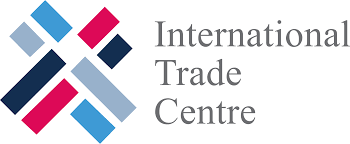Globally women own one-third of businesses but receive only 1% of public contracts. The reality in The Gambia is no different. Women entrepreneurs face limited access to information, complex tendering processes and structural barriers that prevent them from competing for government contracts.
This is why the International Trade Centre (ITC) and the United Nations Population Fund (UNFPA), in partnership with the Government of The Gambia and key stakeholders, launched two major initiatives.
The Public Procurement Guide for Women Entrepreneurs gives the knowledge and tools needed to compete and win government contracts.
The new guide simplifies procurement processes, explaining the rules, requirements and strategies to secure contracts.
‘The development of this guide marks a significant step in our journey toward gender-inclusive economic development,’ says Baboucarr O. Joof, Minister of Trade, Industry, Regional Integration and Employment. ‘It is designed to serve as a vital resource, offering clear guidance on the purpose, scope and application of public procurement law and regulations in The Gambia.’
Ngoneh Panneh, ITC Senior Technical Coordinator in The Gambia, explains: ‘This guide will serve as a critical tool for women entrepreneurs and small and medium-sized enterprises, helping them navigate government tenders and access opportunities that have long been out of reach.’
Developed under the ITC SheTrades Initiative, with co-funding from the European Union Youth Empowerment Project – Tourism and Creative Industries and GIZ, the guide was produced in partnership with the Ministry of Trade, Industry, Regional Integration and Employment, the host institution of the SheTrades Gambia Hub.
The #GambiaPrivateSector4Equality campaign rallies businesses to take concrete action in advancing women’s rights, health and economic participation. It hopes to drive real change within corporate culture.
‘By championing women’s health and rights, and strategically investing in women-led businesses, we are co-creating a future where communities are stronger, businesses thrive and gender equality fuels economic progress,’ says Rose Sarr, UNFPA Country Representative.
Fatoumata Jawara Dukureh, CEO of Maa Group and chairperson of the Women Business Advocacy Group, says: ‘We reaffirm our commitment to advancing women’s rights and economic participation. This is not just about policies—it’s about creating an ecosystem where women thrive without barriers, where the private sector becomes a force for inclusion and where no woman is left behind.’
Distributed by APO Group on behalf of International Trade Centre.



